Civic energy – delivering community benefits of climate action: The COBEN project

DOI reference: 10.1080/13673882.2020.00001066
By Gerard McGovern, University of Oldenburg
Funded by the Interreg North Sea Region Programme, the COBEN project promotes a new process model and business models designed to underpin civic energy systems. The project has built a network of 3,000 organisations with significant impact on regional energy structures.
The need to address climate challenges by cutting C02 emissions has been increasingly highlighted through IPCC reports, the UN Sustainable Development Goals, the UNFCC Paris Agreement, the EU 2030 Climate and Energy Framework [1] and the 2050 Clean Planet for All strategy [2].This is complemented by a growing number of ambitious national and regional climate strategies. Climate and energy are two sides of the one coin; in Europe emissions from the energy sector amount to 78 % of total EU emissions [3].
The COBEN project identifies civic energy (CE) as key to the needed transitions from the fossil-based energy system to a community-driven, renewables-based structure. Such a home-grown energy structure will be largely decentralised and socially embedded and therefore resilient.
Together with related concepts such as community energy, local and regional energy and energy democracy, CE has become a focus area of clean energy policy. Also, the recent Clean Energy for All Europeans policy has adopted a strong citizen focus, particularly in its governance package [4]. The current focus on CE signifies a growing awareness of its potential to deliver on climate targets.
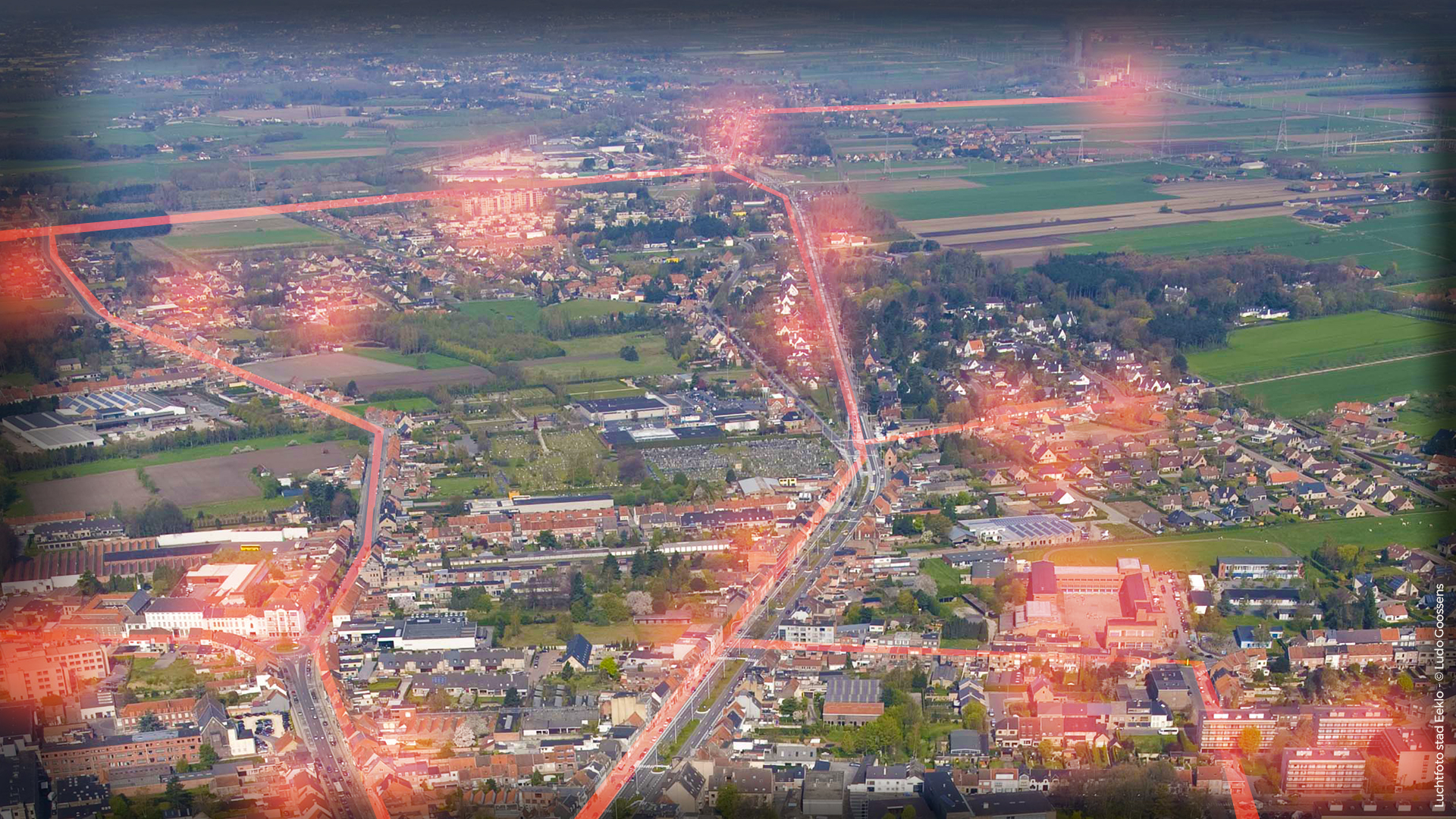
Projected Eeklo heat network
Shift in energy focus
The energy transition challenges can only be met by mobilising pro-active communities to re-design their energy processes and shift the focus from corporate cost-benefit analyses to community needs. Municipalities already boast a more impressive track record of promoting renewables than large utilities.
COBEN’s mission is to turn the vision of civic energy into a manageable process. It highlights the social, economic and environmental benefits of transferring energy supply chains to community-driven initiatives, and it provides tested blueprints for later adopters.
The Civic Energy Conference of September 2019 [5] produced two clear messages:
- The energy transition will happen in the regions or it will not happen at all.
- Local benefits can only be delivered to communities through more power to local and regional governments.
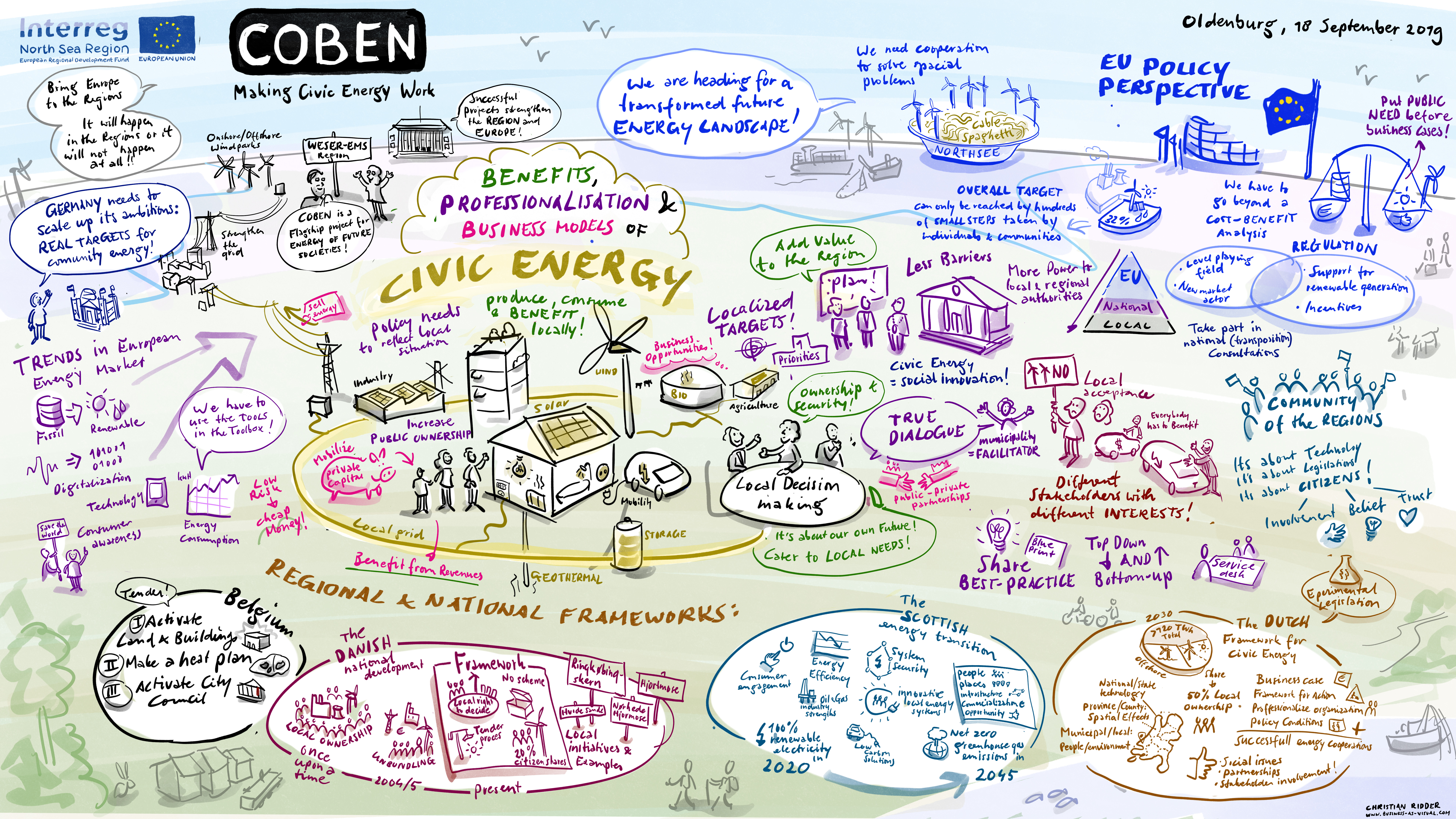
Graphic Recording Civic Energy Conference
A process approach to mainstreaming civic energy
For civic energy to meet this challenge, the process needs to be systematically optimised. A civic energy process design must function as a social transition framework that makes the shift in energy patterns manageable. The Civic Energy Cycle [6] builds on alternative value propositions and comprises Initiation, Planning, Roll-Out, Reflection and Adoption phases. In addition to economic objectives, the targeted socio-economic and community benefits play a key role in shaping the process.
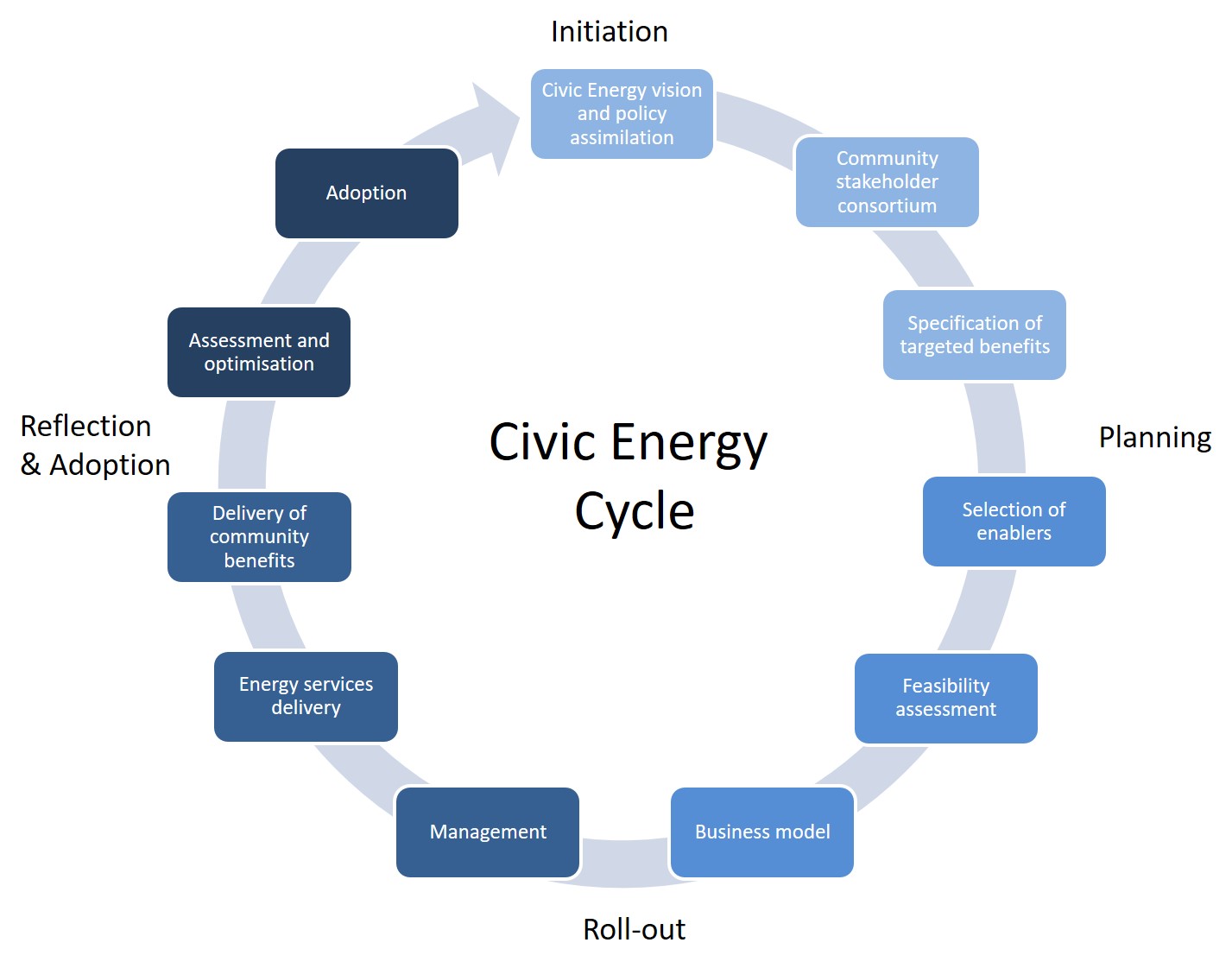
The Civic Energy Cycle
COBEN transforms isolated civic energy initiatives into a quality-assured continuous improvement process. The process itself is designed as a replicable blueprint and driven by tangible targets set by each community. In the main, these lie outside of the energy system and range from lower energy costs and CO2 reductions to increased levels of community cohesion.
New business models for new energy objectives
With a view to promoting easy adoption, the COBEN business models constitute a key project outcome. The need for business model innovation arises from the insight that reframed objectives can only be met with re-designed business models; in the case of civic energy, a whole range of community benefits replaces the sole focus on return on (corporate) investment.
Also, in the light of the decisive role of civic stakeholders, the organisational structure is examined in more detail than technical aspects. The COBEN business model framework acts as a driver framework for CE and draws on the Civic Energy Cycle. A customised online tool is currently under development to guide CE initiatives through the process.
A new energy landscape is emerging
The COBEN project has a growing stakeholder network currently exceeding 3,000 members in 7.5% of the North Sea Region. Together, they are already producing significant impact on regional energy structures. This includes:
- community energy consortiums in all pilot regions;
- new community solar installations in Emmen (The Netherlands) and Østfold (Norway);
- B2C district heating solutions in Osnabrück (Germany);
- community-driven local energy plans in the Scottish Highlands & Islands;
- a new heat network plan for Eeklo (East Flanders); and
- 429 home energy renovation schemes implemented in Ringkjøbing-Skjern (Denmark) with savings projected as high as 9.4 GWH/year.
The farming community in Østfold has replaced 1.272.829 kWh of fossil energy by renewable energy solutions within the project period, reducing CO2 emissions by 316 tons.
Beyond the direct outcomes, a range of sectoral spin-offs is emerging: In Norway, the project agenda has developed from its original focus on energy to the promotion of fossil-free farming.
Similarly, Ringkjøbing-Skjern Municipality’s work in community energy has led to the establishment of village mobility structures designed to foster cohesion within the municipality. In addition, positive policy interaction is happening at regional/local level, e.g. COBEN has greatly influenced the release of the Spatial Planning Directive of Emmen Municipality stipulating 20% community ownership of new solar parks.
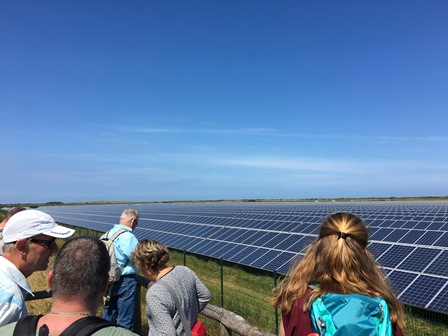
Citizen-owned solar park installation in Emmen, the northeastern Netherlands
We are heading for a transformed energy landscape. The European Commission has adopted a new design of the EU electricity market that introduces a level playing field between all market actors and new rights and opportunities for communities [4]. Much will depend on how the Commission’s recommendations are transformed into national law by the deadline of June 2021.
“Experimental legislation”, as piloted in the Netherlands [7] is an option that can help plot out the new energy landscape and shape the new roles for communities and citizens. Competent locally-based initiatives can act as implementation pilots.
Based on an extension grant, COBEN will expand its capacity building to the entire North Sea Region. This will enable more lay participation in re-designed energy processes, and this will be promoted in each pilot region. The COBEN initiators are aware that energy transition is more of a social than a technological issue: A wealth of social innovation is needed to manage the switch to civic energy.
About COBEN
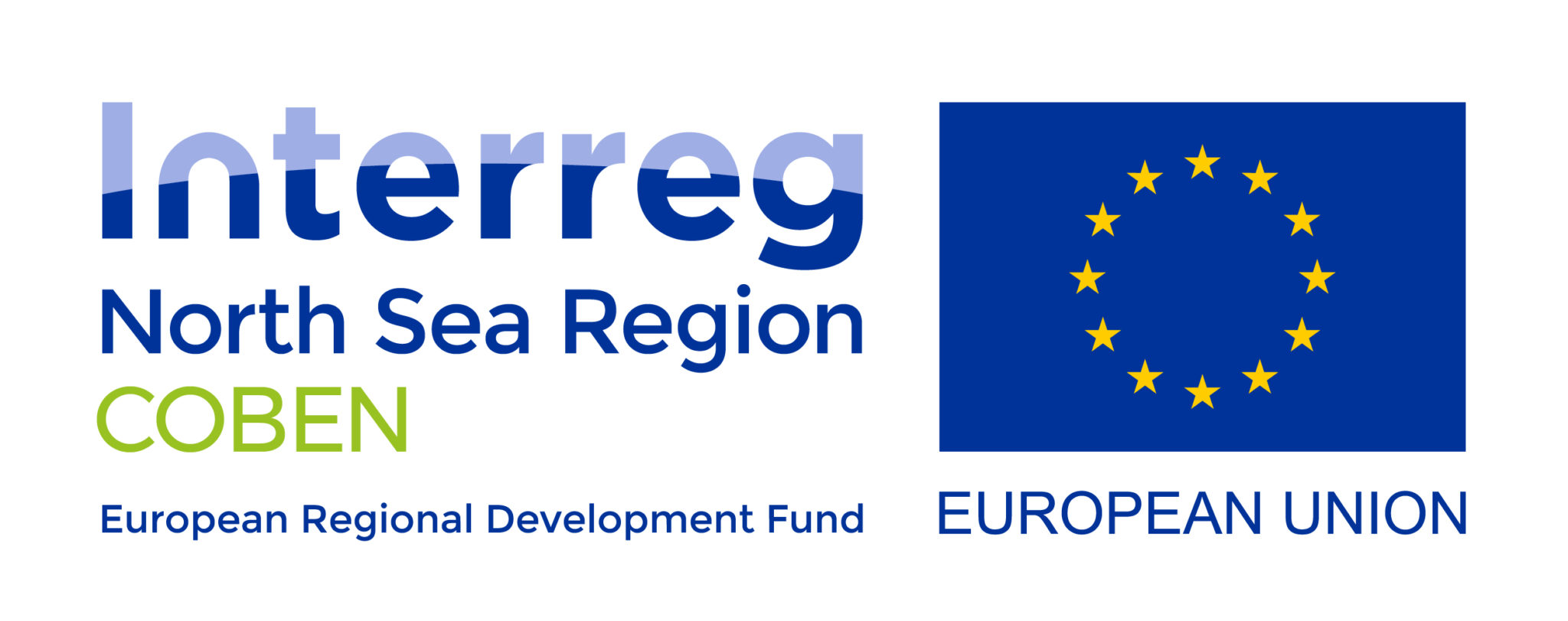
COBEN supports the rise of civic energy across the North Sea Region, to speed up the energy transition in ways that benefit local communities.
- Budget: €6.1 million (€2.7M in ERDF and €313,000 in Norwegian funds).
- Partnership: 12 partners from Belgium, Denmark, Germany, the Netherlands, Norway, Sweden, United Kingdom.
- Duration: Six years (2016 – 2022).
To learn more, visit COBEN’s website.
References
[1] European Commission. 2030 Climate and Energy Framework.
[2] European Commission. 2050 Clean Planet for All long-term strategy.
[3] European Environment Agency. The EEA’s annual report on EU approximated GHG inventory for 2018 EEA Report 16/2019, 2019.
[4] European Commission. Recast Electricity Directive COM(2016) 864 Final/2.
[5] COBEN. The Civic Energy Conference.
[6] McGovern, G.; Klenke, T. A process approach to mainstreaming civic energy. Energies 2018. 11,2914
[7] Government of the Netherlands. Climate Agreement 2019.